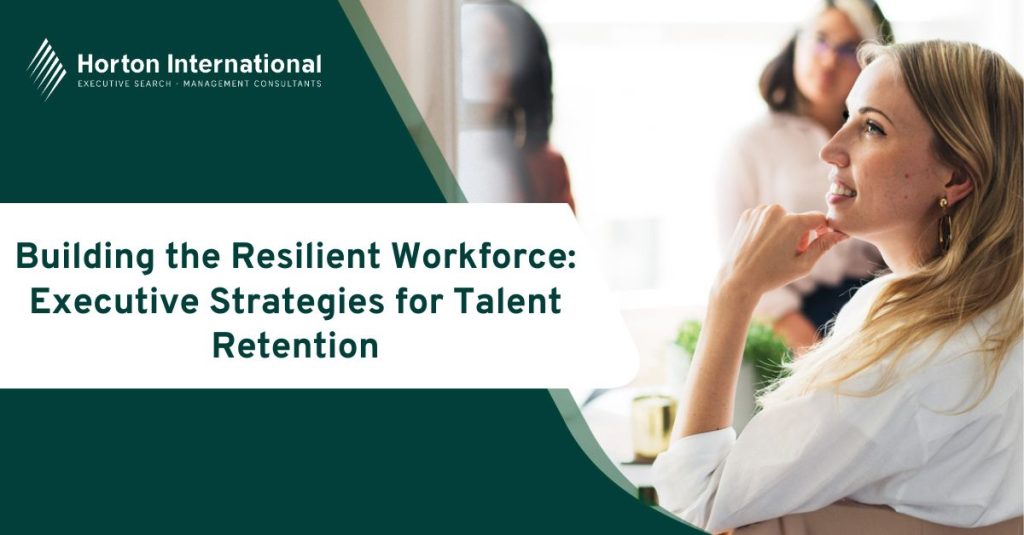Two in five employees globally plan to leave their jobs within the next six months. Only 35% of workers who quit remain in the same industry. Global employee engagement has collapsed to 21%, costing the economy £438 billion in lost productivity.[1] As the Great Attrition evolves into the Great Renegotiation, executives face a turbulent period.
Executive Summary
- Traditional retention approaches fail: Competing solely for ‘traditionalist’ employees creates wage inflation without solving underlying talent shortages (see our article on Skills over Degrees for an in-depth explanation of this phenomenon)
- New categorisations of employee types demand tailored value propositions beyond compensation
- Manager engagement is critical: 70% of team engagement depends on manager effectiveness, yet manager engagement has declined to just 27% globally.
It’s less of a business landscape than a retention wasteland, and executives have to devise talent retention strategies that recognise these diverse employee motivations simultaneous with building adaptive systems capable of withstanding market turbulence. On top of this, 98% of UK CEOs expect substantial business changes this year.[2] No surprise then that workforce resilience has become a strategic imperative rather than an HR initiative.
Understanding the New Talent Landscape
The traditional approach to talent retention, which relies primarily on competitive compensation, prestigious titles, and advancement opportunities now reaches only a portion of the workforce. Recent research reveals five distinct employee personas that executives must understand to build comprehensive retention strategies:[3]
- Traditionalists are invaluable … but insufficient to fill organisational needs. These career-oriented individuals appreciate work-life balance whilst accepting trade-offs for career advancement. Competing solely for this talent pool creates a zero-sum game driving wage inflation without solving underlying retention challenges.
- Do-it-yourselfers represent the largest segment of non-traditional workers, prioritising autonomy above all else. The pandemic drove many talented individuals towards entrepreneurship or gig work, with over 2.8 million additional start-up applications submitted in the United States during 2020-2021.[4] They demand flexible work arrangements and outcome-based management.
- Caregivers are predominantly women aged 18-44 who require genuine flexibility to balance professional and personal responsibilities. This demographic seeks dedicated support systems, four-day workweeks, and flexible scheduling that acknowledges their dual commitments.
- Idealists, typically younger workers aged 18-24 who prioritise meaningful work, community belonging, and career development over compensation. They value inclusive environments that invest in their growth whilst maintaining strong organisational cultures centred on purpose.
- Relaxers include early retirees and experienced professionals who might return under the right circumstances. With only one in five pandemic retirees actively seeking traditional employment, this segment represents untapped potential for organisations willing to offer meaningful ‘work with benefits’.
Manager Engagement: The Critical Lever
The foundation of any resilient workforce strategy lies in manager effectiveness, as 70% of team engagement directly correlates with manager performance. Yet manager engagement has declined globally from 30% to 27%.[5] This trend obviously threatens morale, but productivity, innovation, and retention are also at risk across entire organisations.
Executive leaders need to prioritise comprehensive manager development programmes that extend beyond basic training to include peer coaching, mentorship channels, and continuous development opportunities. There is good news: research demonstrates that even basic adaptive workforce management training can boost team performance by 20-28%, making this investment essential rather than optional.
What makes an effective manager in this situation? Train your execs in emotional intelligence, coaching methodologies, and feedback delivery. Coach them to recognise individual team members’ motivations and adapt their leadership style accordingly. Most importantly, they need support to avoid burnout whilst maintaining the energy required to inspire their teams.
Adaptive Compensation and Recognition Models
The most effective employee retention best practices now emphasise recognition and meaningful acknowledgement alongside salary. These intangible rewards create emotional connection, loyalty, and intrinsic motivation, and often at a fraction of the cost of salary increases.
Forward-thinking organisations are implementing recognition programmes where employees send at least five recognition messages monthly. It might feel formulaic, but this culture of appreciation transcends hierarchical boundaries, whilst reinforcing company values through peer-to-peer acknowledgement.
Adaptive compensation models should include flexible benefits packages that address diverse employee needs. This might encompass on-site childcare for caregivers, professional development budgets for idealists, or consulting arrangements for relaxers seeking project-based engagement.
Cultural Initiatives and Organisational Design
Building workforce resilience requires cultural design that supports diverse working styles whilst maintaining organisational cohesion. What does this look like in the workplace?
Purpose-driven work environments connect individual roles to broader organisational missions. Employees increasingly seek meaning beyond salary, particularly during uncertain times. Leaders must show how each position contributes to meaningful outcomes whilst creating opportunities for cross-functional collaboration.
Flexible organisational structures accommodate various working preferences without compromising productivity. This includes radical flexibility policies, such as location-independent work arrangements and outcome-based performance metrics focusing on results rather than presence.
Inclusive community building emphasises belonging and psychological safety. Younger workers particularly value diversity and inclusion initiatives that create welcoming environments for all team members.
Regional Variations in Talent Retention Challenges
Workforce resilience strategies must account for significant regional variations in employee sentiment and market dynamics. Indian employees show the highest dissatisfaction globally, with over 60% expressing desire to leave their positions, substantially above counterparts in Australia, Canada, the UK, and United States. Singapore follows with 49% planning departures, highlighting the particular challenges facing Asian markets.[6]
These regional disparities reflect cultural expectations, economic conditions, and varied labour market maturity.
Talent retention leadership must recognise these cultural nuances when implementing global strategies. What motivates talent in London may prove ineffective in Mumbai or Singapore, requiring localised approaches within broader organisational frameworks.
Technology Integration and Skills Development
As organisations invest in artificial intelligence and emerging technologies, they must simultaneously develop human capabilities that complement technological advancement. UK CEOs identify skills gaps as the primary barrier to technology adoption (47%).[7]
Executive retention planning must address this skills challenge through comprehensive up-skilling initiatives. Seventy percent of UK CEOs are investing in retaining key talent, whilst 52% focus on up-skilling existing employees. This dual approach recognises that technological transformation requires human adaptability and continuous learning.
Implementation Timeline Framework
90-Day Quick Wins:
- Conduct workforce persona analysis and engagement ‘pulse’ surveys
- Launch recognition programmes with minimum quota of monthly acknowledgements per employee
- Implement manager coaching workshops focused on emotional intelligence and feedback delivery
- Establish flexible working policy pilots for high-potential talent segments.
12-Month Strategic Initiatives:
- Deploy comprehensive manager development programmes with peer coaching networks
- Create adaptive compensation models addressing key personnel needs
- Build skills development pathways incorporating emerging technology requirements
- Design culture-building initiatives that preserve human connection during digital transformation
- Establish retention metrics tied to manager performance indicators.
This phased approach enables organisations to demonstrate immediate value whilst building long-term workforce resilience capabilities.
Implementation Framework for Executive Leaders
Building a resilient workforce requires systematic implementation across multiple dimensions:
Assessment and segmentation: Conduct comprehensive workforce analysis to identify the proportion of different personas within the organisation. This data-driven approach enables targeted retention strategies rather than one-size-fits-all policies.
Manager enablement: Implement robust training programmes for all managers, with particular attention to coaching skills and persona-specific engagement techniques. Establish manager engagement as a key performance indicator tied to retention outcomes.
Flexible value propositions: Develop multiple employee value propositions that appeal to different talent segments whilst maintaining organisational coherence. This requires creative recruitment and retention approaches that showcase various facets of the employment experience.
Cultural intentionality: Design deliberate culture-building initiatives that preserve human connection during technological transformation whilst accommodating diverse working preferences.
Conclusion
The path to workforce resilience in volatile markets demands executive leaders who understand that talent retention has evolved. Success requires moving beyond traditional levers to embrace sophisticated strategies that address diverse employee motivations, whilst building adaptive organisational capabilities.
For organisations seeking to implement these workforce resilience strategies, the complexity of managing diverse talent personas across global markets often requires specialist expertise. International recruitment partners can provide the insights, tools, and implementation support necessary to transform retention challenges into competitive advantages, helping executives build the adaptive workforce capabilities essential for long-term success.
Sources:
[1] https://www.pwc.co.uk/ceo-survey.html






